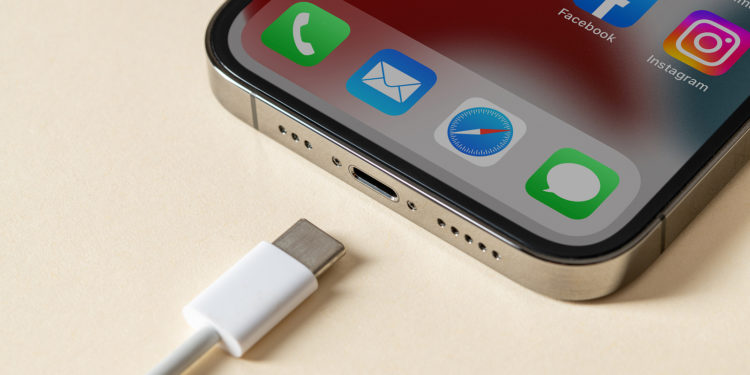The USB-C port of the iPhone 15 series and the associated charging cables are said to be equipped with a Lightning-type authentication chip, which could limit functionality with accessories not approved by Apple.
The latest rumor saysthat Apple has developed its own USB-C variant for this year's iPhone 15. It comes from a user who claims to be an integrated circuit expert who worked on Intel's Pentium processors for 25 years. Integrated circuits (ICs) are semiconductor chips used to exchange information between devices. Since their introduction in 2012, MFi-certified Lightning ports and connectors have included a small IC that confirms the authenticity of the components involved in the connection. Non-MFi-certified third-party charging cables, for example, do not have this chip, which often leads to the "This accessory is not supported" warning on the connected Apple devices.
Apple does not want to give up the business with MFi-certified peripherals
The authentication chip allows Apple to encourage customers to buy genuine iPhone accessories and receive a commission on MFi-certified accessories. But this also helps Apple crack down on counterfeit and potentially dangerous accessories. The latest rumor says that Apple has developed a similar IC for the USB-C ports on the iPhone 15 and iPhone 15 Pro, and probably for the charging cables as well. The new IC is expected to be used not only for the iPhone 15 but also for new MFi-certified peripherals. It is worth noting that the USB-C interface that Apple currently uses in the 10th generation iPad, iPad mini, iPad Air, and iPad Pro does not contain an IC chip for authentication.
Faster transfer speeds are reserved for the iPhone 15 Pro models
It is unclear whether this addition will have a major impact on the functionality of the new devices. It is possible that Apple will limit features such as fast charging and high-speed data transfer to Apple and MFi-certified cables. According to Apple analyst Ming-Chi Kuo, the USB-C port on the iPhone 15 and iPhone 15 Plus will be limited to USB 2.0 speeds - just like Lightning. Only the iPhone 15 Pro and iPhone 15 Pro Max models are expected to receive faster transfer speeds. So the only major difference between Lightning and USB-C on the standard iPhone 15 models could simply be the physical shape of the port. (Photo by yalcin.sonat / Bigstockphoto)





